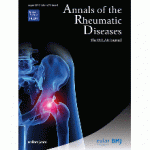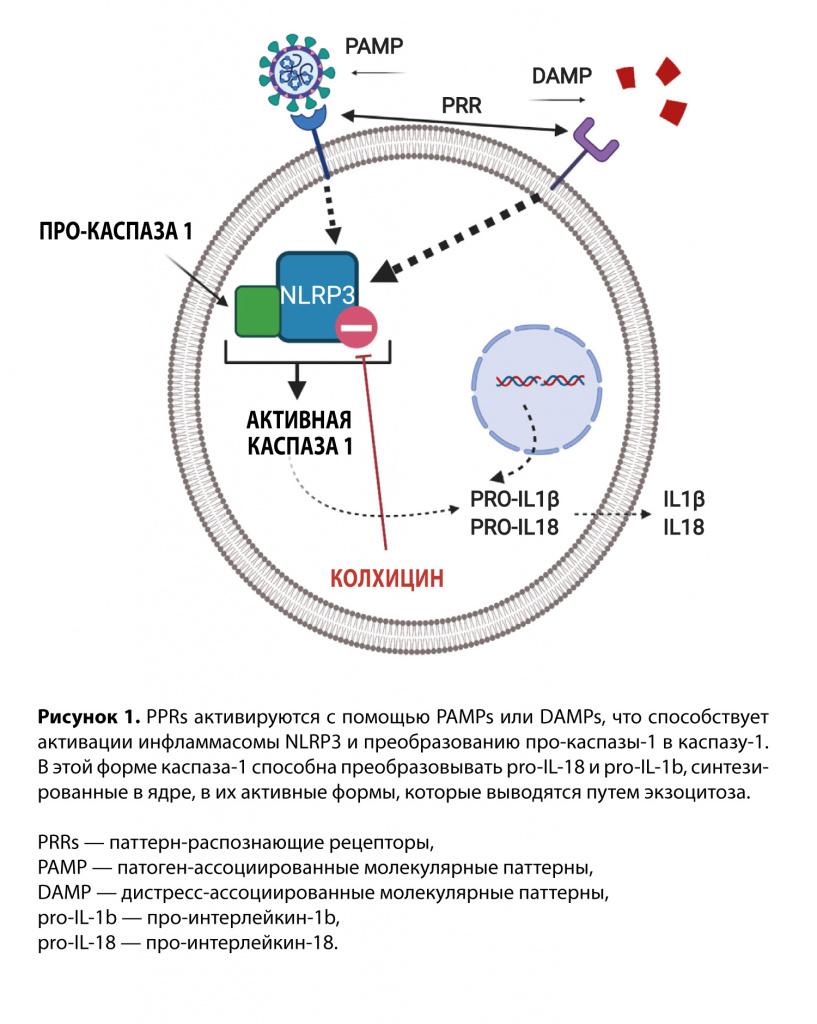 Цели
Цели
Вспышка COVID-19 поставила вопрос о срочном определении стратегии лечения. В данном контексте была рассмотрена возможность применения колхицина на основании хорошо известных противовоспалительных эффектов и потенциальных противовирусных свойств. В настоящем исследовании колхицин был предложен в качестве дополнительной терапии пациентам с COVID-19, и его влияние сравнивалось с эффектом терапии по «стандарту оказания медицинской помощи» (СОМП).
Методика
В государственной больнице Эсине, Северная Италия, 140 последовательных стационарных пациентов с вирусологически и рентгенологически подтвержденной инфекцией COVID-19, поступивших в период с 5 по 19 марта 2020 года, получали лечение «СОМП «(гидроксихлорохин и/или внутривенный дексаметазон; и/или лопинавир/ритонавир).
Их показатели сравнивали с данными по 122 последовательным стационарным пациентам, поступившим в период с 19 марта по 5 апреля 2020 года, получавшим колхицин (1 мг/сут) и СОМП (прием противовирусных препаратов был прекращен до начала приема колхицина из-за потенциального взаимодействия).
Результаты
В группе пациентов, получавших терапию колхицином, была показана более высокая выживаемость по сравнению с группой СОМП на 21-й день наблюдения (84,2% (СО=3,3%) по сравнению с 63,6% (СО=4,1%), Р=0,001). Регрессионный анализ выживаемости пропорциональных рисков Кокса показал, что более низкий риск смерти был независимо связан с лечением колхицином (ОР=0,151 (95% ДИ 0,062−0,368), р<0,0001), в то время как более пожилой возраст, худший показатель PaO2/FiO2 и более высокие сывороточные уровни ферритина при поступлении были связаны с более высоким риском.
Заключение
Данное исследование обоснования концепции позволяет подтвердить оправданность использования колхицина для лечения COVID-19. Эффективность и безопасность должны быть определены в контролируемых клинических исследованиях.

SA Ribeiro et al The therapeutic potential of colchicine in the complications of COVID19. Could the immunometabolic properties of an old and cheap drug help? Metabol Open (2020)
https://doi.org/10.1016/j.metop.2020.100 045 2589−9368/© 2020 The Author (s).
Ann Rheum Dis. 2020 Jul 30;annrheumdis-2020−217 712
MirkoScarsi, Silvia Piantoni, Enrico Colombo, Paolo Airó, DonataRichini, Marco Miclini, Valeria Bertasi, Marta Bianchi, DamianoBottone, PatriziaCivelli, Maria-Sofia Cotelli, EzioDamiolini, Gloria Galbassini, Diego Gatta, Maria-Laura Ghirardelli, Roberto Magri, Paola Malamani, MoniaMendeni, Stefano Molinari, Andrea Morotti, Luisa Salada, MarinellaTurla, Angiola Vender, Angela Tincani, Antonio Brucato, Franco Franceschini, Roberto Furloni, Laura Andreoli
PMID: 32 732 245
DOI: 10.1136/annrheumdis-2020−217 712
Association between treatment with colchicine and improved survival in a single-centre cohort of adult hospitalised patients with COVID-19 pneumonia and acute respiratory distress syndrome
Objectives
The outbreak of COVID-19 posed the issue of urgently identifying treatment strategies. Colchicine was considered for this purpose based on well-recognised anti-inflammatory effects and potential antiviral properties. In the present study, colchicine was proposed to patients with COVID-19, and its effects compared with ‘standard-of-care’ (SoC).
Methods
In the public hospital of Esine, northern Italy, 140 consecutive inpatients, with virologically and radiographically confirmed COVID-19 admitted in the period 5−19 March 2020, were treated with ‘SoC’ (hydroxychloroquine and/or intravenous dexamethasone; and/or lopinavir/ritonavir).
They were compared with 122 consecutive inpatients, admitted between 19 March and 5 April 2020, treated with colchicine (1 mg/day) and SoC (antiviral drugs were stopped before colchicine, due to potential interaction).
Results
Patients treated with colchicine had a better survival rate as compared with SoC at 21 days of follow-up (84.2% (SE=3.3%) vs 63.6% (SE=4.1%), p=0.001). Cox proportional hazards regression survival analysis showed that a lower risk of death was independently associated with colchicine treatment (HR=0.151 (95% CI 0.062 to 0.368), p<0.0001), whereas older age, worse PaO2/FiO2, and higher serum levels of ferritin at entry were associated with a higher risk.
Conclusion
This proof-of-concept study may support the rationale of use of colchicine for the treatment of COVID-19. Efficacy and safety must be determined in controlled clinical trials.
